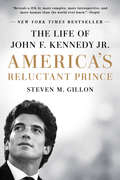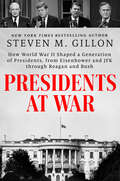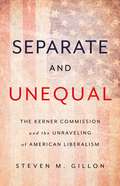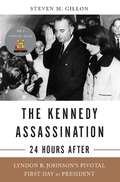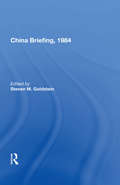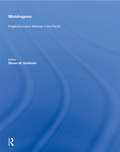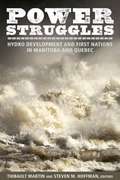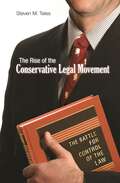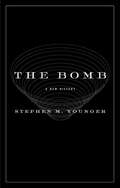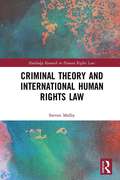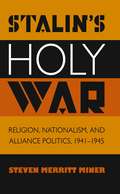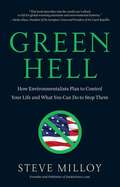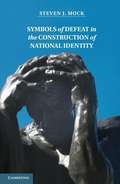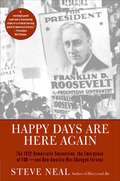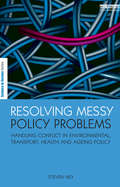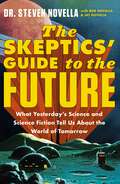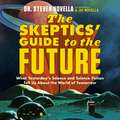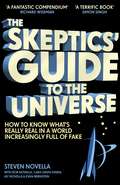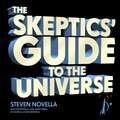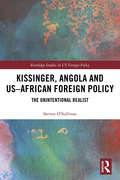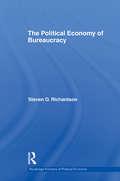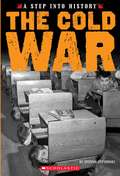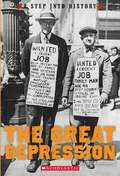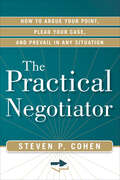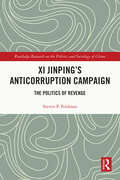- Table View
- List View
America's Reluctant Prince: The Life of John F. Kennedy Jr.
by Steven M. Gillon*A New York Times Bestseller*A major new biography of John F. Kennedy Jr. from a leading historian who was also a close friend, America&’s Reluctant Prince is a deeply researched, personal, surprising, and revealing portrait of the Kennedy heir the world lost too soon. Through the lens of their decades-long friendship and including exclusive interviews and details from previously classified documents, noted historian and New York Times bestselling author Steven M. Gillon examines John F. Kennedy Jr.&’s life and legacy from before his birth to the day he died. Gillon covers the highs, the lows, and the surprising incidents, viewpoints, and relationships that John never discussed publicly, revealing the full story behind JFK Jr.&’s complicated and rich life. In the end, Gillon proves that John&’s life was far more than another tragedy—rather, it&’s the true key to understanding both the Kennedy legacy and how America&’s first family continues to shape the world we live in today.
Presidents at War: How World War II Shaped a Generation of Presidents, from Eisenhower and JFK through Reagan and Bush
by Steven M. GillonSteven M. Gillon, historian and New York Times bestselling author, is back with the story of how WWII shaped the characters and politics of seven American presidents.World War II loomed over the latter half of the twentieth century, transforming every level of American society and international relationships and searing itself onto the psyche of an entire generation, including that of seven American presidents: Dwight D. Eisenhower, John F. Kennedy, Lyndon B. Johnson, Richard Nixon, Gerald Ford, Ronald Reagan, and George H. W. Bush. The lessons of World War II, more than party affiliation or ideology, defined the presidencies of these seven men. They returned home determined to confront any force that threatened to undermine the war&’s hard-won ideals, each with their own unique understanding of patriotism, sacrifice, and America&’s role in global politics.In Presidents at War, Gillon examines what these men took away from the war and how they then applied it to Cold War policies that proceeded to change America, and the world, forever. A nuanced and deeply researched exploration of the lives, philosophies, and legacies of seven remarkable men, Presidents at War deftly argues that the lessons learned by these postwar presidents continue to shape the landscape upon which current and future presidents stand today.
Separate and Unequal: The Kerner Commission and the Unraveling of American Liberalism
by Steven M. GillonThe definitive history of the Kerner Commission, whose report on urban unrest reshaped American debates about race and inequalityIn Separate and Unequal, historian Steven M. Gillon offers a revelatory new history of the National Advisory Commission on Civil Disorders--popularly known as the Kerner Commission. Convened by President Lyndon Johnson after riots in Newark and Detroit left dozens dead and thousands injured, the commission issued a report in 1968 that attributed the unrest to "white racism" and called for aggressive new programs to end discrimination and poverty. "Our nation is moving toward two societies," it warned, "one black, and one white--separate and unequal."Johnson refused to accept the Kerner Report, and as his political coalition unraveled, its proposals went nowhere. For the right, the report became a symbol of liberal excess, and for the left, one of opportunities lost. Separate and Unequal is essential for anyone seeking to understand the fraught politics of race in America.
The Kennedy Assassination--24 Hours After: Lyndon B. Johnson's Pivotal First Day as President
by Steven M. GillonRiding in an open-topped convertible through Dallas on November 22, 1963, Lyndon B. Johnson heard a sudden explosive sound at 12:30 PM. The Secret Service sped him away to safety, but not until 1:20 PM did he learn that John F. Kennedy had been assassinated. Sworn in next to a bloodstained Jackie Kennedy at 2:40 PM, Johnson worked feverishly until 3:00 in the morning, agonizing about the future of both his nation and his party. Unbeknownst to him, his actions had already determined the tragic outcome of his presidency. In November 22, 1963, historian Steven Gillon tells the story of how Johnson consolidated power in the twenty-four hours following the assassination. Based on scrupulous research and new archival sources, this gripping narrative sheds new and surprising light on one of the most written-about events of the twentieth century.
China Briefing, 1984
by Steven M. GoldsteinChina Briefing, 1984 aims to increase American understanding of Chinese life, culture, and society; to counter stereotypical thinking about China; and to provide a non-partisan source of information for those seeking to understand or explain China to the American public.
Minidragons: Fragile Economic Miracles In The Pacific
by Steven M. GoldsteinThe purpose of this book is to introduce one of the most significant international developments of the post World War II era-the dramatic socio-economic transformation achieved by Hong Kong, Singapore, South Korea and Taiwan. In less than three decades, these "minidragons" of Asia have become major economic players, not only in the economy of the Pacific rim, but in the global economic system as well. In the essays which follow, the nature of this transformation is charted; its causes are described; and some assessment is made of the factors that will shape the future of these "fragile economic miracles." This volume was originally conceived as a companion to the television series entitled Minidragons, an international co-production of Maryland Public Television (MPT) with NHK, Japan, and Film Australia.
Power Struggles: Hydro Development and First Nations in Manitoba and Quebec
by Thibault Martin Steven M. HoffmanPower Struggles: Hydro Development and First Nations in Manitoba and Quebec examines the evolution of new agreements between First Nations and Inuit and the hydro corporations in Quebec and Manitoba, including the Wuskwatim Dam Project, Paix des Braves, and the Great Whale Project. In the 1970s, both provinces signed so-called “modern treaties” with First Nations for the development of large hydro projects in Aboriginal territories. In recent times, however, the two provinces have diverged in their implementation, and public opinion of these agreements has ranged from celebratory to outrage.Power Struggles brings together perspectives on these issues from both scholars and activists. In debating the relative merits and limits of these agreements, they raise a crucial question: Is Canada on the eve of a new relationship with First Nations, or do the same colonial attitudes that have long characterized Canadian-Aboriginal relations still prevail?
The Rise of the Conservative Legal Movement: The Battle for Control of the Law (Princeton Studies in American Politics: Historical, International, and Comparative Perspectives #110)
by Steven M. TelesStarting in the 1970s, conservatives learned that electoral victory did not easily convert into a reversal of important liberal accomplishments, especially in the law. As a result, conservatives' mobilizing efforts increasingly turned to law schools, professional networks, public interest groups, and the judiciary--areas traditionally controlled by liberals. Drawing from internal documents, as well as interviews with key conservative figures, The Rise of the Conservative Legal Movement examines this sometimes fitful, and still only partially successful, conservative challenge to liberal domination of the law and American legal institutions. Unlike accounts that depict the conservatives as fiendishly skilled, The Rise of the Conservative Legal Movement reveals the formidable challenges that conservatives faced in competing with legal liberalism. Steven Teles explores how conservative mobilization was shaped by the legal profession, the legacy of the liberal movement, and the difficulties in matching strategic opportunities with effective organizational responses. He explains how foundations and groups promoting conservative ideas built a network designed to dislodge legal liberalism from American elite institutions. And he portrays the reality, not of a grand strategy masterfully pursued, but of individuals and political entrepreneurs learning from trial and error. Using previously unavailable materials from the Olin Foundation, Federalist Society, Center for Individual Rights, Institute for Justice, and Law and Economics Center, The Rise of the Conservative Legal Movement provides an unprecedented look at the inner life of the conservative movement. Lawyers, historians, sociologists, political scientists, and activists seeking to learn from the conservative experience in the law will find it compelling reading.
The Bomb: A New History
by Steven M. YoungerA former Los Alamos weapons designer shares “an indispensable guide to the science and strategy of nuclear weapons” (Booklist).From his years at Los Alamos and the Nevada Test Site to his meetings with nuclear arms experts in Moscow, former weapons designer Stephen M. Younger has witnessed firsthand the making of nuclear policy. With a deep understanding of both the technology and the politics behind nuclear weapons, he guides us from the Manhattan Project to the Cold War and into the present day, illuminating how nuclear weapons fit into our globalized, war-plagued world. With startling clarity, Younger reveals how weapons work, the myths and realities of what happens after a nuclear explosion, and how our nuclear policy evolved to what it is today. In an era when rogue nations like North Korean and Iran strive to create their own precarious weapons programs, Younger provides much-needed background and insight for students, policy makers, and readers who wish to better understand the important issues involving nuclear weapons and national security.“Younger has provided an insightful guide, especially for the general reader, into today’s array of nuclear powers and their capabilities.” —James Schlesinger, former Secretary of Defense and Secretary of Energy
Criminal Theory and International Human Rights Law (Routledge Research in Human Rights Law)
by Steven MalbyThe development of an international human rights jurisprudence on criminalization is in its relative infancy. Nonetheless, systematic examination of international decisions on acts engaging the criminal law reveals an emerging human rights approach to the acceptability, or not, of criminalization. This book provides an in-depth characterization of the reasoning and principles that underpin those decisions. The work builds upon and adds value to existing literature by bringing together two fields of study – international human rights law and criminal theory – that usually receive separate treatment. It provides an in-depth analysis of human rights criminalization jurisprudence and presents a systematic identification of underlying reasoning and concepts that influence international human rights decisions on criminalization. The work thus advances both fields independently, as well as providing an example of inter-(sub)disciplinary analysis. The book will be a valuable resource for academics and students working in the areas of International Human Rights Law, Criminal Law, and Moral Philosophy.
Stalin's Holy War
by Steven Merritt MinerHistories of the USSR during World War II generally portray the Kremlin's restoration of the Russian Orthodox Church as an attempt by an ideologically bankrupt regime to appeal to Russian nationalism in order to counter the mortal threat of Nazism. Here, Steven Merritt Miner argues that this version of events, while not wholly untrue, is incomplete. Using newly opened Soviet-era archives as well as neglected British and American sources, he examines the complex and profound role of religion, especially Russian Orthodoxy, in the policies of Stalin's government during World War II.Miner demonstrates that Stalin decided to restore the Church to prominence not primarily as a means to stoke the fires of Russian nationalism but as a tool for restoring Soviet power to areas that the Red Army recovered from German occupation. The Kremlin also harnessed the Church for propaganda campaigns aimed at convincing the Western Allies that the USSR, far from being a source of religious repression, was a bastion of religious freedom. In his conclusion, Miner explores how Stalin's religious policy helped shape the postwar history of the USSR.
Green Hell: How Environmentalists Plan To Control Your Life And What You Can Do To Stop Them
by Steven MilloyBig Brother Has Turned GreenThe environmental movement has cultivated a warm and fuzzy public image, but behind the smiley-face rhetoric of "sustainability" and "conservation" lies a dark agenda. The Greens aim to regulate your behavior, downsize your lifestyle, and invade the most intimate aspects of your personal life.In this stunning exposé, Steve Milloy unveils the authoritarian impulse underlying the Green crusade. Whether they're demanding that you turn down your thermostat, stop driving your car, or engage in some other senseless act of self-denial, the Greens are envisioning a grim future for you marked by endless privation.Steamrolling nearly all opposition with its apocalyptic predictions of environmental doom, the Green movement has gained influence throughout American society--from schools and local planning boards to the biggest corporations in the country. And their plans are much more ambitious than you think, says Milloy. What the Greens really seek, with increasing success, is to dictate the very parameters of your daily life--where you can live, what transportation you can use, what you can eat, and even how many children you can have.Citing the tactics and goals of Green groups as explained by their own activists and leaders, Green Hell demonstrates:* How Green pressure campaigns threaten the safety of your home and your car, and public health overall* Why the election of President Obama portends a giant leap forward for coercive Green policies* Why Greens obstruct the use of all forms of energy--even the renewable sources they tout to the public* How wealthy Green elites stand to profit fabulously from the restrictions and regulations they seek to impose on the rest of us* How Green pressure campaigns are hamstringing the military and endangering our national security* Why big business is not only knuckling under to the Greens, but is aggressively promoting the green agenda to the detriment of its own stockholders* What you can do to help stop the great Green machineA one-of-a-kind, comprehensive takedown of the entire environmental movement, Green Hell will open your eyes to a looming threat to our economy, our civil liberties, and the entire American way of life.
Symbols of Defeat in the Construction of National Identity
by Steven MockIf nationalism is the assertion of legitimacy for a nation and its effectiveness as a political entity, why do many nations emphasize images of their own defeat in understanding their history? Using Israel, Serbia, France, Greece and Ghana as examples, the author argues that this phenomenon exposes the ambivalence that lurks behind the passions nationalism evokes. Symbols of defeat glorify a nation's ancient past, while reenacting the destruction of that past as a necessary step in constructing a functioning modern society. As a result, these symbols often assume a foundational role in national mythology. Threats to such symbols are perceived as threats to the nation itself and consequently are met with desperation difficult for outsiders to understand.
Happy Days Are Here Again: The 1932 Democratic Convention, the Emergence of FDR—and How America Was Changed Forever
by Steven NealPolitical conventions in years past were more than pep rallies for preselected candidates -- they were suspenseful, no-holds-barred battles for the nomination. In 1932, Franklin Delano Roosevelt, the man who would become one of America's most beloved presidents, was far from a shoo-in for the Democratic nomination at the party's convention in Chicago. Using new sources of information, award-winning reporter Steve Neal weaves the compelling story of how FDR finally got the nod along with the personalities of the day who influenced the decision, including Joseph P. Kennedy, Al Smith, Huey Long, and William Randolph Hearst.
Resolving Messy Policy Problems: Handling Conflict in Environmental, Transport, Health and Ageing Policy (The Earthscan Science in Society Series)
by Steven NeyOur lives increasingly take place in ever more complex and interconnected networks that blur the boundaries we have traditionally used to define our social and political spaces. Accordingly, the policy problems that governments are called upon to deal with have become less clear-cut and far messier. This is particularly the case with climate change, environmental policy, transport, health and ageing - all areas in which the tried-and-tested linear policy solutions are increasingly inadequate or failing. What makes messy policy problems particularly uncomfortable for policy makers is that science and scientific knowledge have themselves become sources of uncertainty and ambiguity. Indeed what is to count as a 'rational solution' is itself now the subject of considerable debate and controversy. This book focuses on the intractable conflict that characterises policy debate about messy issues. The author first develops a framework for analysing these conflicts and then applies the conceptual framework to four very different policy issues: the environment - focussing on climate change - as well as transport, ageing and health. Using evidence from Europe, North America and the Asia-Pacific, the book compares how policy actors construct contending narratives in order to make sense of, and deal with, messy challenges. In the final section the author discusses the implications of the analysis for collective learning and adaptation processes. The aim is to contribute to a more refined understanding of policy-making in the face of uncertainty and, most importantly, to provide practical methods for critical reflection on policy and to point to sustainable adaptation pathways and learning mechanisms for policy formulation.
The Skeptics' Guide to the Future
by Steven NovellaPre-order now: the new book from the bestselling authors and hosts of the wildy popular 'The Skeptics Guide to the Universe'__________Our predictions of the future are a wild fantasy, inextricably linked to our present hopes and fears, biases and ignorance. Whether they be the outlandish leaps predicted in the 1920s, like multi-purpose utility belts with climate control capabilities and planes the size of luxury cruise ships, or the forecasts of the '60s, which didn't anticipate the sexual revolution or women's liberation, the path to the present is littered with failed predictions and incorrect estimations.The best we can do is try to absorb from futurism's checkered past, perhaps learning to do a little better.In The Skeptics' Guide To The Future, Steven Novella and his co-authors build upon the work of futurists of the past by examining what they got right, what they got wrong, and how they came to those conclusions. By exploring the pitfalls of each era, they give their own speculations about the distant future, transformed by unbelievable technology ranging from genetic manipulation to artificial intelligence and quantum computing. Applying their trademark skepticism, they carefully extrapolate upon each scientific development, leaving no stone unturned as they lay out a vision for the future of tomorrow.__________
The Skeptics' Guide to the Future
by Steven NovellaFrom the bestselling authors and hosts of 'The Skeptics' Guide to the Universe' a high-tech roadmap of the future in their beloved voice, cracking open both the follies of futurists past and how technology will profoundly change our world moving forward.__________Our predictions of the future are a wild fantasy, inextricably linked to our present hopes and fears, biases and ignorance. Whether they be the outlandish leaps predicted in the 1920s, like multi-purpose utility belts with climate control capabilities and planes the size of luxury cruise ships, or the forecasts of the '60s, which didn't anticipate the sexual revolution or women's liberation, the path to the present is littered with failed predictions and incorrect estimations.The best we can do is try to absorb from futurism's checkered past, perhaps learning to do a little better.In The Skeptics' Guide To The Future, Steven Novella and his co-authors build upon the work of futurists of the past by examining what they got right, what they got wrong, and how they came to those conclusions. By exploring the pitfalls of each era, they give their own speculations about the distant future, transformed by unbelievable technology ranging from genetic manipulation to artificial intelligence and quantum computing. Applying their trademark skepticism, they carefully extrapolate upon each scientific development, leaving no stone unturned as they lay out a vision for the future of tomorrow.__________(P) 2022 Hachette Audio
The Skeptics' Guide to the Universe: How To Know What's Really Real in a World Increasingly Full of Fake
by Steven Novella'A fantastic compendium of skeptical thinking and the perfect primer for anyone who wants to separate fact from fiction.' Richard Wiseman, author 59 Seconds'Thorough, informative, and enlightening... If this book does not become required reading for us all, we may well see modern civilization unravel before our eyes.' Neil deGrasse Tyson, author of Astrophysics for People in a HurryIn this tie-in to their popular 'The Skeptics Guide to the Universe' podcast, Steven Novella, along with 'Skeptical Rogues' Bob Novella, Cara Santa Maria, Jay Novella and Evan Bernstein explain the tenets of skeptical thinking and debunk some of the biggest scientific myths, fallacies and conspiracy theories (anti-vaccines, homeopathy, UFO sightings, and many more.) They'll help us try to make sense of what seems like an increasingly crazy world using powerful tools like science and philosophy. The Skeptics' Guide to the Universe is your guide through this maze of modern life. It covers essential critical thinking skills, as well as giving insight into how your brain works and how to avoid common pitfalls in thinking. They discuss the difference between science and pseudoscience, how to recognize common science news tropes, how to discuss conspiracy theories with that crazy colleague of yours, and how to apply all of this to everyday life.As fascinating as it is entertaining, this page turner is your essential guide to seeing through the fake news and media manipulation in our increasingly confusing world.
The Skeptics' Guide to the Universe: How To Know What's Really Real in a World Increasingly Full of Fake
by Steven Novella'A fantastic compendium of skeptical thinking and the perfect primer for anyone who wants to separate fact from fiction.' Richard Wiseman, author 59 Seconds'Thorough, informative, and enlightening... If this book does not become required reading for us all, we may well see modern civilization unravel before our eyes.' Neil deGrasse Tyson, author of Astrophysics for People in a HurryAn entertaining and all-encompassing guide to skeptical thinking for the age of misinformation.In this tie-in to their popular 'The Skeptics Guide to the Universe' podcast, Steven Novella, along with 'Skeptical Rogues' Bob Novella, Cara Santa Maria, Jay Novella and Evan Bernstein explain the tenets of skeptical thinking and debunk some of the biggest scientific myths, fallacies and conspiracy theories (anti-vaccines, homeopathy, UFO sightings, and many more.) They'll help us try to make sense of what seems like an increasingly crazy world using powerful tools like science and philosophy. The Skeptics' Guide to the Universe is your guide through this maze of modern life. It covers essential critical thinking skills, as well as giving insight into how your brain works and how to avoid common pitfalls in thinking. They discuss the difference between science and pseudoscience, how to recognize common science news tropes, how to discuss conspiracy theories with that crazy colleague of yours, and how to apply all of this to everyday life.As fascinating as it is entertaining, this page turner is your essential guide to seeing through the fake news and media manipulation in our increasingly confusing world.(P)2018 Hachette Audio
Kissinger, Angola and US-African Foreign Policy: The Unintentional Realist (Routledge Studies in US Foreign Policy)
by Steven O'SullivanAnalysing US foreign policy towards Angola during the Ford administration, this book provides an intriguing insight into one of the most avoidable and unfortunate episodes in Cold War history and explores the impact on Henry Kissinger’s much vaunted reputation for being guided by realist principles. Kissinger has dominated political discourse and scholarship on US foreign policy since the 1970s, but although his legacy continues to generate controversy, little attention has been paid to the influence of Vietnam’s collapse on the US decision to covertly intervene in the Angolan civil war. This book argues that Kissinger’s concern for personal reputation and US credibility following the collapse of Vietnam led to a harmful and unrealistic policy toward Angola. Exposure of US covert intervention exacerbated domestic and international political tensions and the subsequent showdown between the excutive and legislative branches ironically resulted in Kissinger proclaiming a new departure in US–African relations. Thus, it is argued that Kissinger was an ‘unintentional realist’ rather than an intellectual proponent of realpolitik. Enhancing our understanding of Kissinger, his relationship with his subordinates and with Congress, and his approach to foreign policy, this book will be of interest to scholars of Cold War history, US foreign policy and all those fascinated by the personality of Henry Kissinger.
The Political Economy of Bureaucracy (Routledge Frontiers of Political Economy #135)
by Steven O. RichardsonThe Political Economy of Bureaucracy applies Public Choice theory and a complex systems view of government institutions to analyze policy implementation as an economic process. It addresses the common and vexing question of why managing federal agencies for results is so difficult by challenging traditional assumptions of institutional design and policy analysis. Using creative methods that focus on relationships that constrain the choices of executives and managers in a political hierarchy, the author reveals control and coordination as goals that are imperfectly achieved and often conflicting with one another. Despite decades of intense study, serious reform efforts and impressive technological advances, the U.S. government remains a typical bureaucracy that fails to meet citizens’ expectations. Clearly, policy analysis is missing something. The problem may rest with "machine" models of government. Rules, especially those governing expenditures, are assumed to be feasible and effective. Analysis of the federal government as a complex system of relationships between semi-autonomous agents helps explain the disconnect between policy and results. The solution is to roll back micro-management of ends and means; policymakers should focus on objectives and facilitate implementation by selectively relaxing constraints that prevent experimentation needed to determine the most effective methods. This book devotes unusual attention to the interaction between executive and legislative branches of government and between political appointees and career civil servants. Most studies of government policy take existing institutional structure for granted. Different conclusions emerge from this analysis by virtue of the systems view that accepts status quo hierarchies but questions the effectiveness of the rules that govern policy implementation. This book will be of interest to postgraduates and researchers focussing on Economic Theory, Public Choice, Institutional Economics and Political Science, as well as to those working in the public sector interested in Public Administration, Public Policy, and Organizational Behavior.
The Cold War (A Step into History)
by Steven OtfinoskiWars between rival nations are usually fought on the battlefield. However, from the end of World War II until the early 1990s, the United States and the Soviet Union were engaged in a Cold War in which neither side ever directly attacked the other. Readers will learn about the Cold War's origins and find out how the rival nations competed with each other. They will also learn about the conflict's effects on people around the world, its lasting impact, and more.
The Great Depression (A Step Into History)
by Steven OtfinoskiWhen the stock market crashed in October 1929, The world's economy was thrown into disarray. For the next decade, the great Depression left millions of Americans without jobs and forced countless businesses to close. Readers will discover how people struggled to make a living in a time of high unemployment, how the government tried to solve the country's economic troubles and much more.
The Practical Negotiator: How to Argue Your Point, Plead Your Case, and Prevail in Any Situation
by Steven P. Cohen“A well-written practical guide to the art and science of negotiation . . . I found [Cohen’s] advice, offered in a concise Q and A format, to be pure gold.” —Bennett G. Picker, author of Mediation Practice GuideThere’s an inner negotiator in everyone—and The Practical Negotiator helps you find yours. We all need to reach agreement with others in our daily lives, but many people are overly fearful of what they think is a complex process. In this book, prominent consultant Steven Cohen demystifies negotiation, offering common-sense approaches anyone can use no matter what the issue.The Practical Negotiator provides a broad range of real-life negotiating problems faced by people in dozens of countries from every continent (except Antarctica). Each question was submitted by a real person looking for advice. The book’s down-to-earth approach will empower you to:Assess your interests and strengths and find ways to build on themUnderstand the situation and the possibilities at handIncrease your confidence in dealing with othersDevelop and implement simple, practical strategies to further your interests, and more
Xi Jinping's Anticorruption Campaign: The Politics of Revenge (Routledge Research on the Politics and Sociology of China)
by Steven P. FeldmanThrough empirical analysis and conceptual development, this book analyzes the political psychology of Xi Jinping's Anticorruption Campaign and its role in the Chinese political system. Using Nietzsche’s concept of ressentiment and data collected from direct fieldwork, the book analyzes the Chinese Communist Party (CCP) dictatorship, revealing that it is prone to extremes, through ideology or corruption, and highlights how the Party’s attempts to address one extreme only leads to the rise of another. In turn, it examines the Anticorruption Campaign in multiple ways including its use to increase the role of ideology in Chinese society, how it functions to concentrate Xi's power, its cultural form as a status reversal ritual, and its continuity with previous communist campaigns and ancient Chinese political traditions. Through each of these analyses, the book identifies crucial mechanisms through which the CCP maintains power through interrelated policies, actions, and their emotional effects. Providing a vital understanding of the CCP, this book will be an invaluable resource to students and scholars of Chinese politics, as well as diplomats and policymakers on China.
